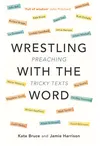How contented are you? Content with your job and your income? Content with your family relationships and friendships? Content with your involvement in your church?
All the consumer surveys tell us that we live in an age characterised by discontent, though, of course, the marketers have a vested interest in stimulating that mindset to boost their sales. But should we be content? Might it be a close cousin of complacency in the family of inactivity and even sloth?
Mark of false teachers
There’s an intriguing comment by the apostle Paul at the end of his first letter to Timothy, that ‘godliness with contentment is great gain’ (1 Timothy 6.6). In context, he is warning Timothy about the false teachers who are invading the church at Ephesus, of which he is the pastor, and who are hoping to make a financial killing out of the erroneous teachings they are so keen to peddle. They think that their (false) godliness is a means to financial gain, whereas Paul teaches that (true) godliness is in itself the gain, especially when accompanied by ‘contentment’. The same word is translated in 2 Corinthians 9.8 as ‘having all that you need’ (NIV), so it means having sufficient resources, being satisfied with what you’ve got. If we aim for that, our true focus, as disciples, will be on growing more and more like the Lord Jesus, as the image of God is restored in us. Whether our financial resources are increasing, or not, is then a totally secondary issue.






